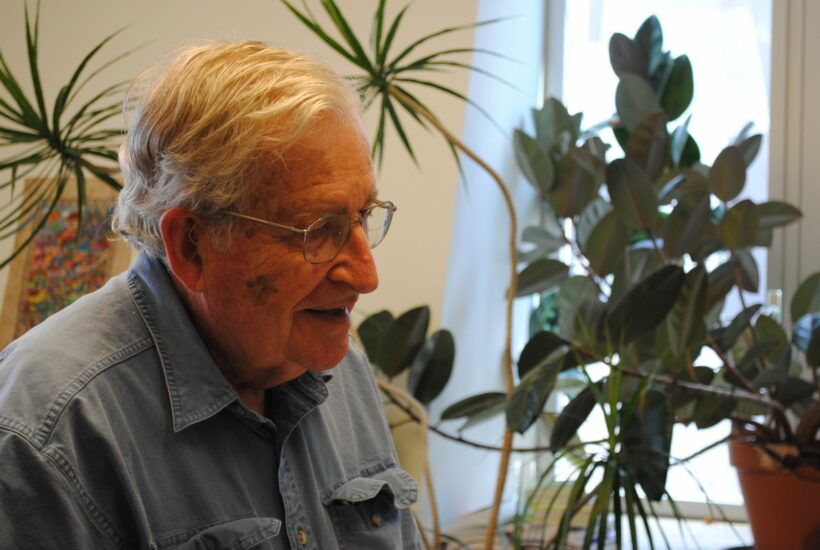The Israeli government has moved 400,000 Orthodox Jews to the West Bank. The settlers have moved there for economic reasons, but it also converges with nationalism and once they are there they have a high birth rate. It has been a carefully implemented policy.
Hirsch asked Chomsky, “Do you think the US will change its policy towards Israel?”
“It happened before with South Africa,” said Chomsky.
“Many people create analogies between South Africa and Israel that make no sense, but there is one analogy which is pertinent. We know from declassified documents that in 1960 the South African foreign minister had an interesting discussion with the American Ambassador in which he explained that South Africa was not worried about international pressure and a UN vote against South Africa’s apartheid system as long as they had US support. The American Ambassador agreed, and it worked for 40 years until the United States changed its position, around 1990. Washington switched mainly for two reasons: first, the business community here and in South Africa both came to realize that they would be better off if they could get rid of apartheid but keep the same social economic system, and the second reason, which not many people like to talk about, was Cuba. Cuba played a big role in liberating South Africa from apartheid.”
“In the case of Israel and Palestine,” asked Hirsch, “should there be one country or two?”
“That is not the issue,” Chomsky replied. “It doesn’t matter because we could describe a way to get there in stages. You could start by creating two states and then build commercial relations, cultural relations, and then it will become clear to everyone that one state is more interesting. But you don’t stop there: one state is not the end of the story. A no-state solution is the only hope for the refugees, to remove the boundaries.”
“That would be not too far from the Ottoman Empire, which was so corrupt that they didn’t have the energy to interfere in people’s lives. You could go from Cairo to Baghdad and then to Istanbul, cross the border to Beirut and Jerusalem. The Greeks could run their affairs, the Armenians could run their affairs. That was an interesting situation, leaving aside the violence and the corruption.”
Hirsch switched the conversion to South America and gave a grand tour through Bolivia, Venezuela, Ecuador, Argentina and, of course, Chile with its student movement, the protests about the hydro-electric project in Patagonia and the destruction of the Pinochet social and economical policies which are still in place.
“Chile still has, for example, one of the most expensive education systems per GDP in the world. The Chilean state makes one billion dollars from student loans,” informed Hirsch.
Chomsky concluded the discussion by declaring that South America is the most exciting place in the world right now.






